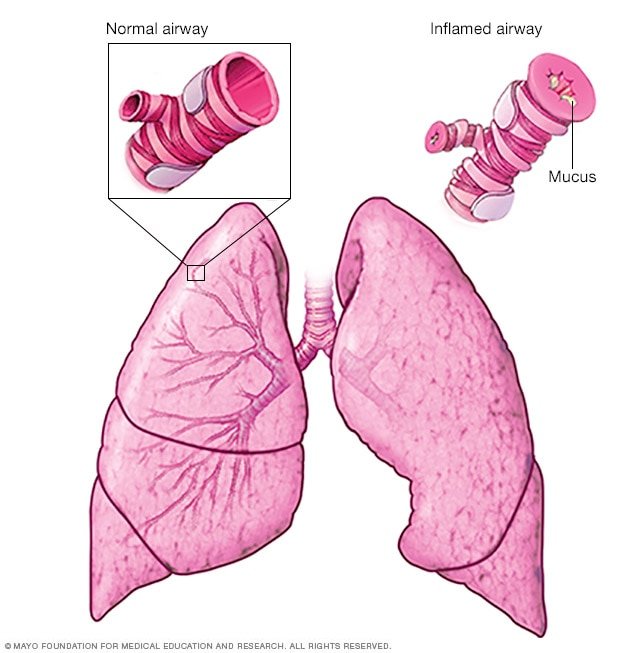Asthma and Our Diet
Can asthma symptoms be influenced by our diet?
The purpose of this blog post is to emphasize the connection between the foods we consume and our respiratory health. Research is ever-evolving, so the purpose is to open one’s eyes and see the broader picture of how our diet can affect our health, and improve it, such as in the case of our respiratory health.
If you enter any health food store or grocery store you’ll see products advertising that they’re antioxidant-rich. It has become very trendy and popular to eat foods and take supplements that contain antioxidants but is there any real benefit to one’s underlying disease or illness? First, what exactly is an antioxidant? It’s a substance that protects and fights against oxidative stress (refer to the image below), which is an imbalance between free radicals and antioxidants in the body. Free radicals are able to easily react with other molecules and cause damage and disease. When an antioxidant is present it is able to donate an electron to the free radical so it becomes less reactive. Oxidative stress may play a role in asthma, cancer, cardiovascular disease, and diabetes. There have been multiple studies evaluating the use of antioxidants and their effect on asthma patients specifically.
Asthma, a chronic inflammatory lung disease that reduces airflow, has been associated with oxidative stress. Symptoms vary and can include shortness of breath, chest tightness/pain, wheezing, coughing, and difficulty breathing. Children and adults can be affected and symptoms can worsen when exposed to allergens, exercise, and workplace irritants involving fumes and gases. Treatment typically involves the administration of medications like bronchodilators and corticosteroids, but what if the food one ingested helped managed the occurrence of asthma flares and symptoms. Numerous epidemiologic studies have reported protection against asthma and respiratory decline with ingestion of dietary antioxidants.
There are antioxidant-rich foods like grapes, blueberries, nuts, and dark green vegetables but also dietary supplements. Exogenous substances like Vitamin C, Vitamin E, carotenoids, and flavonoids can be found in those fruits and vegetables. During the body’s normal metabolic processes it also creates its own antioxidants as well, which are endogenous. The American Journal of Clinical Nutrition published an article entitled, “Manipulating antioxidant intake in asthma: a randomized controlled trial” (https://doi.org/10.3945/ajcn.111.032623) which investigates the effects of a high antioxidant diet in asthma. It found that a diet high in antioxidants (HAO) had improved lung function. Those in the low antioxidant (LAO) diet had trends showing increased CRP concentration, which is an inflammatory marker. The number of subjects that experienced an asthma exacerbation was higher in the LAO diet than in the HAO diet. A finding that was more surprising is that a high antioxidant diet using whole foods and not supplements had a greater effect on increased antioxidant concentrations and clinical improvements of asthma. Some have argued that supplements may be more effective than whole foods due to the increased quantity in a smaller serving, however, this shows that whole food is more effective. According to the article “whole foods may be needed to improve nutritional status because of the interdependence of the nutrients that are naturally present in the whole-food matrix.”
Author: Shandra Bellinger
About the author: Shandra Bellinger is a former Research Assistant and mentee of the RIPLRT. Shandra is current a third year med school student.



